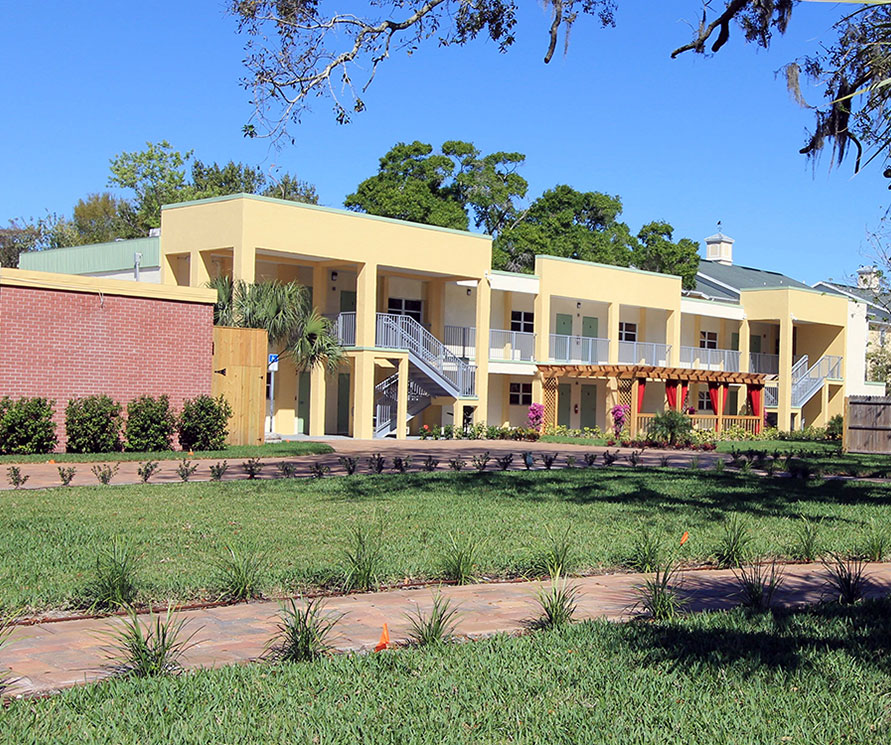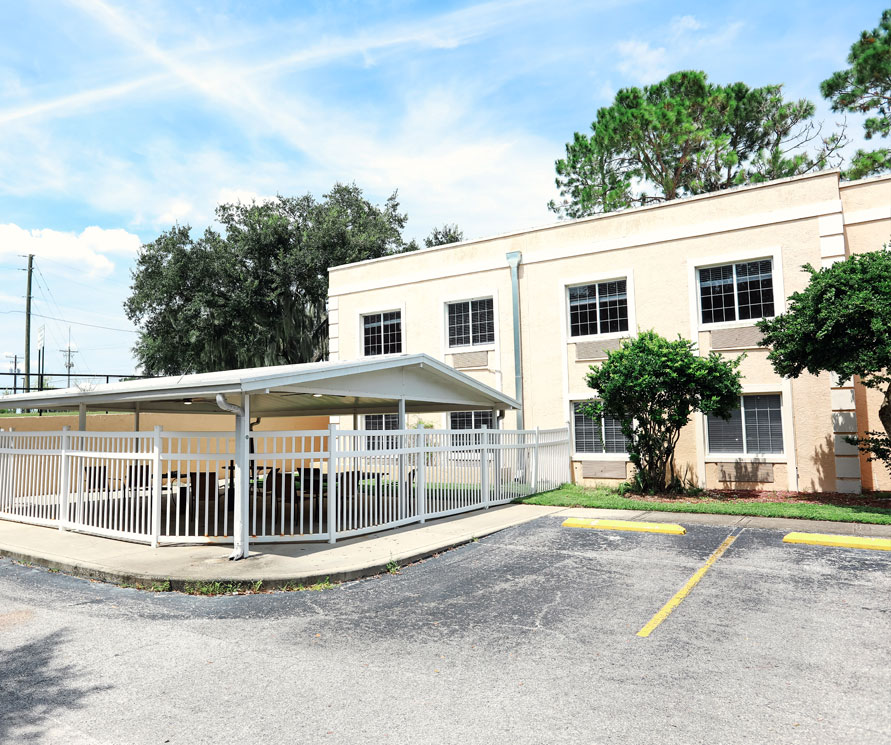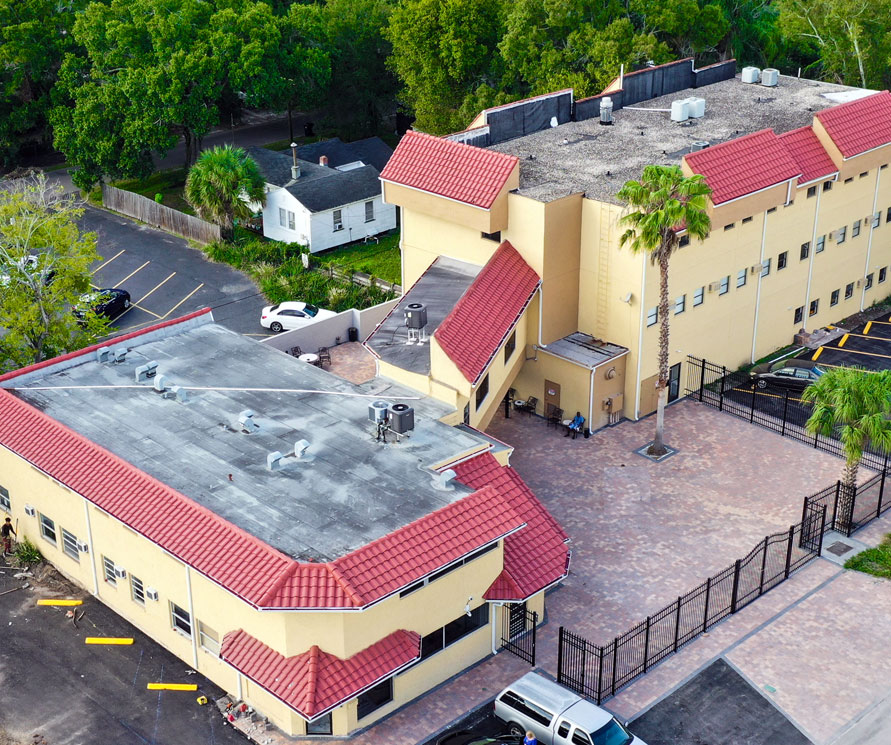Project Description
We all want to help the older adults in our family stay safe, healthy, and happy. Finding ways to do so can be challenging as a senior begins to require our assistance. Start learning more about the different types of senior care and which one might best fit a loved one’s needs.
What Is Assisted Living?
An assisted living community is the best of two worlds. It is a senior housing option that allows an older adult to maintain their independence while still having the assistance they need nearby. Assisted living communities are designed for adults who need help performing the activities of daily living. It might be assistance with bathing and grooming or a helping hand managing their medication schedule. Although communities have staff on-site 24 hours a day, the goal of an assisted living community is to keep residents as independent as possible. Every assisted living community has a unique personality and offers different levels of care, services, and amenities. Some are more upscale and formal, while others have a casual, relaxed environment.
The Benefits of Moving to an Assisted Living Community
Research shows just how important where you choose to live matters during retirement. From wellness programs to a thoughtfully-designed environment, here’s how assisted living communities help older adults live their best quality of life.
- Opportunities for socialization: Isolation has been identified as a health risk for older adults. It contributes to health conditions ranging from depression to high blood pressure. When an older adult moves to an assisted living community, they have opportunities to participate in planned life enrichment activities and informal gatherings. Both can help seniors stay actively engaged with life.
- Abundant wellness programs: Assisted living communities offer a wide range of resident health and wellness programs every day. They give older adults opportunities to engage in fitness programs and wellness classes. From chair yoga and swimming to meditation and Pilates, most communities have activities planned to engage the body, mind, and spirit on-site—no transportation required!
- Well-balanced meals: It isn’t uncommon for older adults to rely on convenience foods and fast food. Preparing healthy meals for one or two people can be time-consuming and expensive. Some seniors may have given up driving, making trips to the grocery store more difficult. Assisted living communities have dining services programs that offer well-balanced meals and snacks. Many residents enjoy companionship and socializing in the community dining room during mealtimes.
- Independence plus support: The older a person gets, the more they may fear losing their independence. But with aging come physical changes that sometimes make living alone risky. A move to an assisted living community is often the best of both worlds. Seniors have the support they need to stay safely independent in their own suite or private apartment.
- Safety features: Unlike older homes that may have laundry rooms in the basement, outdated bathrooms, and many steps, assisted living communities are designed with safety in mind. Safety benefits include grab bars, handrails, emergency call systems, step-free showers, and staff on-site around the clock.
- Transportation services: Another benefit assisted living communities offer is transportation. Most communities provide or coordinate transportation services to get residents to and from medical appointments. Scheduled outings to area attractions, shopping centers, events, and restaurants also include transportation.
- Health management: Assisted living communities also have systems in place for fall prevention, weight monitoring, and chronic health condition management. Medication management support is also offered to ensure residents stay safely on-track with their medications.
When an older loved one begins struggling to maintain their safety and independence at home, families often begin searching for senior care options. Finding a solution that will keep the senior safe while allowing them to feel independent is usually the goal.
Fortunately, assisted living is a type of care that meets those criteria.
Answering Commonly Asked Questions about Assisted Living
Q: What is assisted living?
A: Assisted living communities are a popular option for older retired adults because they combine independence with assistance. Residents of an assisted living community appreciate having their own apartment or suite. This allows them to maintain their autonomy and independence while knowing the support of caregivers is nearby around the clock.
Q: What types of care and services are offered in an assisted living community?
A: Assisted living residents can receive help with personal care and the activities of daily living (ADL), including bathing, dressing, grooming, and toileting. Many also require support with medication management.
Well-balanced meals, healthy snacks, housekeeping services, laundry, transportation, life enrichment activities, and wellness programs are usually included in the resident’s monthly fee.
Q: How is an assisted living community different from a nursing home?
A: Families often think an assisted living community is just a fancier version of a nursing home. These two types of senior housing may seem similar, but are, in fact, very different. Assisted living communities focus on providing a level of support that is more custodial in nature and less medically complex. Residents usually need help with two or three activities of daily living: bathing, grooming, dressing, toileting or continence care, and transferring (i.e., from one chair to another).
Residents often need assistance managing their medications, too.
By contrast, residents of a nursing home have more complex medical needs. A resident might live with diabetes and need skilled nursing care to tend to chronic wounds. Or they might have an illness like chronic obstructive pulmonary disease (COPD) that requires support from a respiratory therapist.
Q: Does Medicare pay for an assisted living community?
A: The answer to this question is sometimes surprising for older adults and their loved ones: Medicare doesn’t help finance assisted living.
Medicare is a health insurance program designed to pay for the health care-related expenses of seniors and younger people who have disabilities. Because assisted living doesn’t meet that criteria, seniors and their families must rely on other types of financing for assisted living.
Q: Are residents allowed to have pets in assisted living?
A: Many assisted living communities allow pets, though there might be size restrictions. Some require the resident to manage their pet independently, while others offer services to help the senior care for their pet.
If you or your senior loved one has a pet that will be making the move too, ask the community for a copy of their pet policy.
Q: Do residents have to sign a long-term lease at assisted living communities?
A: Contracts and resident agreements differ from community to community. In general, most communities only require a month-to-month contract or lease.
Q: Can residents decorate their own apartment?
A: Yes! Communities typically welcome this as it helps the senior create an environment that looks and feels like home. Many assisted living communities also have staff members who help with space planning before the move.
Q: Are families welcome to visit a loved one in an assisted living community any time?
A: While assisted living communities usually have open visitation hours, they do ask families to remember the community is home for residents. Early morning or late-night visitors are encouraged to be respectful of other residents.
OUR COMMUNITIES
Join Over 500 Residents Enjoying Best Care Senior Living Now
Fill in the fields below to request a callback.




